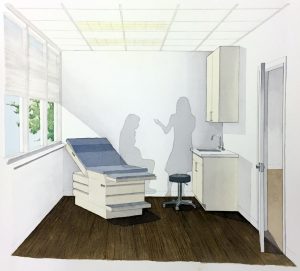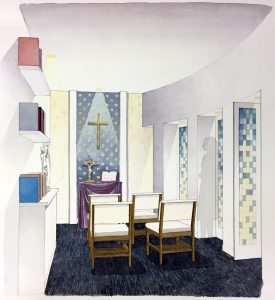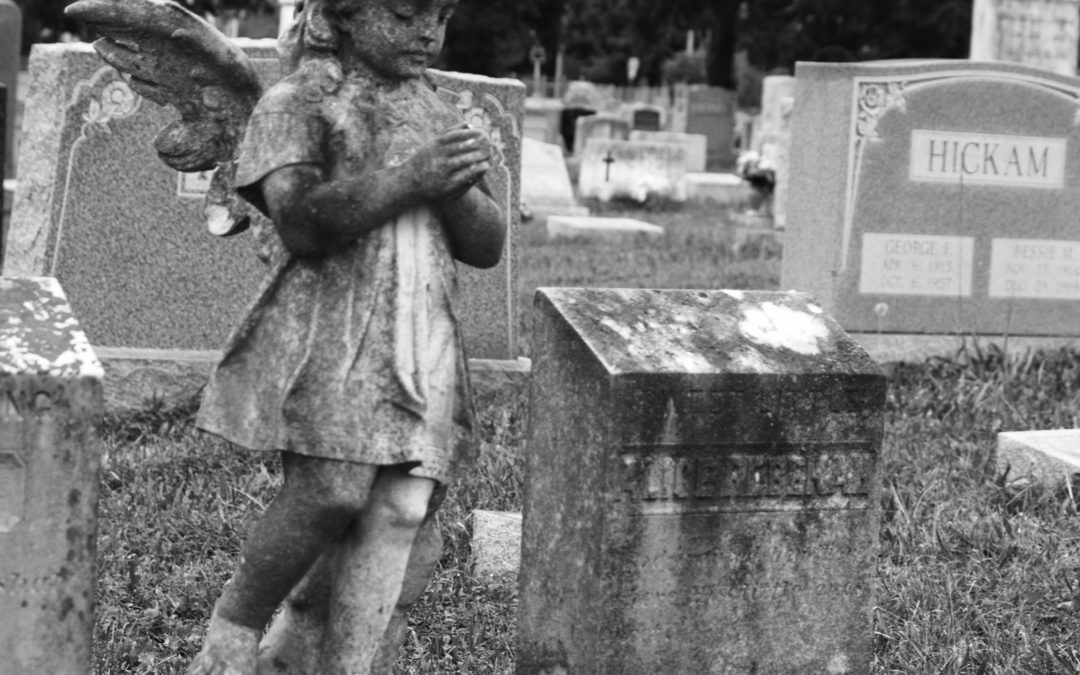When It Rains
With four difficult back-to-back pregnancies under my belt, I felt like a pro at all that maternity had to throw at me. I had been through a full nine months of morning sickness, bleeding, miscarriage scares, health complications, postpartum depression, and a baby unexpectedly delivered by my husband. What else was there? And yet, with each new pregnancy, there lies an element of fear of the unknown.
But miscarriage was only a term. It was something that other mothers had feared and cried over but remained too awful to personally consider. Yet it became very real and so much more than an arbitrary term as I walked down the hallway from my 10-week sonogram to meet with the doc. Everything was telling – the downcast faces, uncomfortable silence, and the apologetic hug I was greeted with by my doctor.
As he began discussing options and talking through ways to distinguish the fetus from the bloody discharge, I felt the room spinning. All I had to do was get out of that office. But where would I go? Could I run away from the fact that my unborn baby was dead inside of me? Could I rewrite this suffering or pass the cup now?

Courtesy Architect Victor Sanz, with DMG – Draft Rendering by Hannah Weber
Next Steps
I got into the van, with kids in tow, and called the only person I knew to call in the situation – Kara Palladino, who like many women in the Church had experienced prenatal loss – several losses to be exact. From a very young age, Kara had received an unusual call on her heart to an uncomfortable work of mercy, yet fearing such heartbreak she began praying that she would never have to bury a baby – her own or anyone else’s. But as He often does, God asks the extremely difficult of us. Yet, when He does, He pours out so much mercy into the midst of suffering, that only His love remains present.
Kara’s head was spinning as she experienced that first loss during her second trimester of pregnancy. She immediately called her parish for support, but never received a returned phone call in response to her many messages. As she began the daunting process of calling funeral homes and cemeteries on her own, she was shocked to find that the costs and logistics of burying her unborn child were outrageous.
This wasn’t only the case in her parish but was an oversight in many parishes. As Kara continued to learn of the many distraught families walking through their miscarriage unsupported, she again heard the very specific call that God had begun to whisper in her heart before her loss – a call to bury unborn babies. After burying her own, another family sought her help, and then another, and another. Over the course of the next year, she met with pastors, hospitals, funeral homes, and anyone who could help ease the burden of these families of prenatal loss.
An Unusual Ministry Is Born
What was needed was an organized ministry with many resources in place – both physical and spiritual. And so Kara began A Mom’s Peace, in her own Virginia parish, which offers support to families of miscarried babies through what has become a huge network of hospitals, funeral homes, handmade caskets and hand-sewn burial gowns, and a priest scheduled to celebrate the rite of Christian burial for each tiny soul. “The spiritual side is so important and so overlooked,” she reflects as she shares about the foundation of the ministry she has created. Every time I hold one of these little unborn babies, it’s “like holding Christ, like holding heaven.”
When I first interviewed Kara, before my own loss, I wondered if the process of burying babies unsettled her. On the contrary she said, “I understand it as a gift given to me, a tremendous privilege to care for my sister in Christ in this way. It makes my heart absolutely burst! That’s how I do it every day.”
And so, on one of those days, I came to find myself in the place of the women we had discussed years earlier – in need of the many mercies of the ministry she created. Kara, who attends every burial, was my greatest advocate. She worked with the hospital before my D and C to obtain the release of the baby. She made all arrangements with the funeral home and had them transport the remains of our baby to the graveyard. She met us there already holding tiny handmade wooden casket and handed us a small treasury of memorial cloth from the burial gown, saint’s medals, and a tiny teddy bear. Her pants and boots were muddy from digging our daughter’s small plot, which rest among the many other small plots that Kara had dug and laid babies to rest.
Divine Mercy
The peace that came from that burial rite, dear friends, is the greatest mercy of all. I cannot imagine how families suffer and struggle alone to plan the many details and pay the many costs. How do they suffer without spiritual support, especially in a society that is not always kind to those sentimentalizing the loss of their unborn child? Our family came to know this particular saving grace of Christ through an unrecognized need, from a ministry built upon what seemed like an odd calling to me years earlier.
Similar medical facilities have also begun to take notice of this necessary support to those suffering prenatal loss. Dr. Marie Anderson, who I am blessed to say performed my D and C, and who will retire this year from Tepeyac OB/GYN in Virginia has spent the past 20 years establishing a Perinatal Hospice program. This program works with hospitals to change stringent procedures on the release of a baby’s remains, as well as establishing partnerships with offices such as that of Decedent Affairs, social workers, and grief counselors.
Anderson, who lost her own daughter in 2004, at the age of 25, says she “realized how much her funeral meant to me.” This certainly influenced her experience of walking alongside patients who suffered the loss of children in miscarriage only to be met with red tape and walls of policy preventing them from receiving their child’s remains for burial. Anderson recalls, “It broke my heart to watch parents go through this difficult time and need to honor their child.”
In one of the most vulnerable stages of life, medical professionals such as Dr. Marie Anderson recognize that it takes a community to support the grieving and to change the inhumane policies in place. Thanks to her work and the work of tireless parishioners like Kara Palladino, ministries covering a multitude of works of mercy are springing forth in parishes and hospitals in all our communities.

Courtesy Architect Victor Sanz, with DMG – Draft Rendering by Hannah Weber
Links
Kimberly Cook
Writer, Podcaster, Mother, & Catholic Apologist. Meet Kimberly



